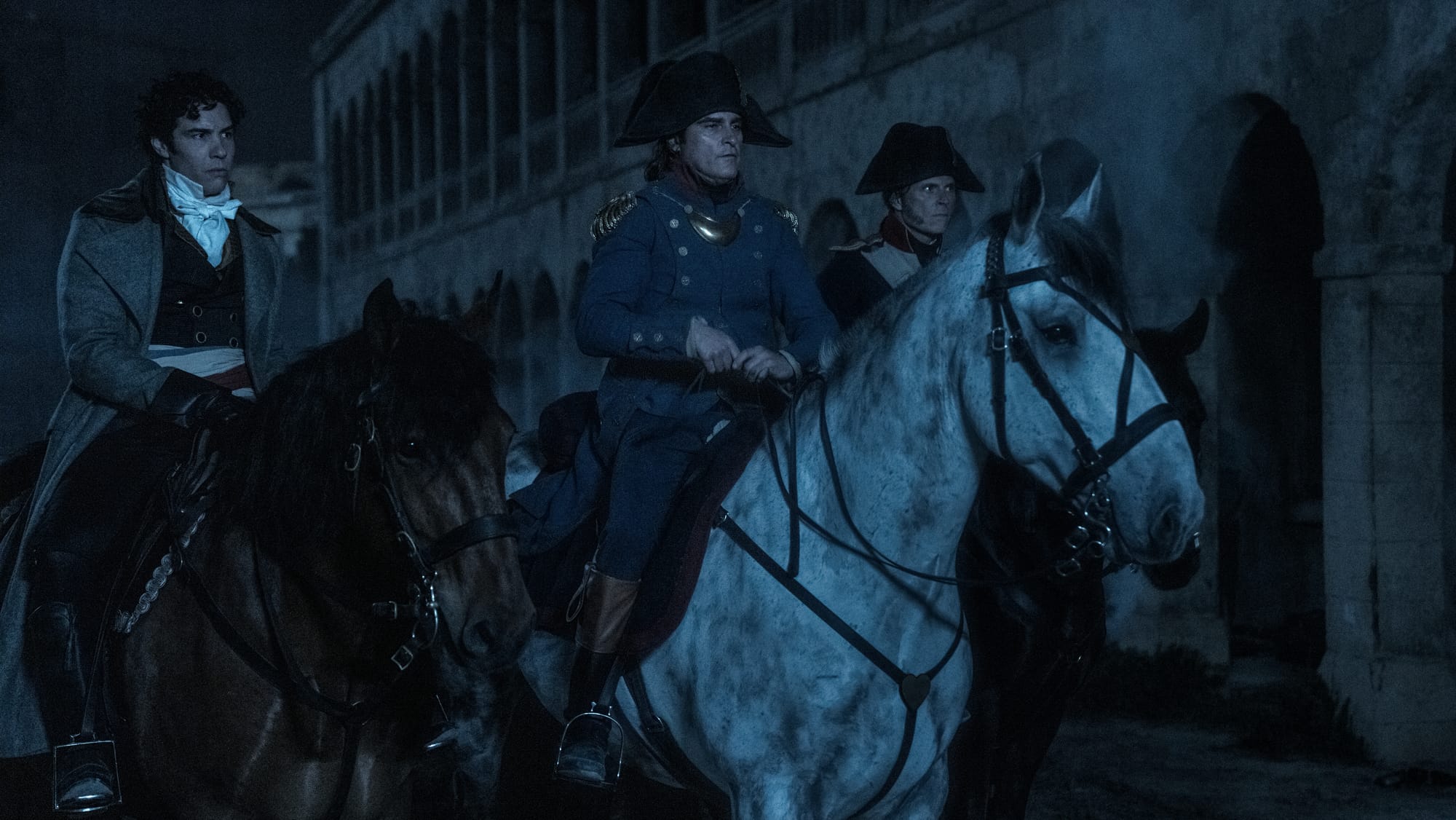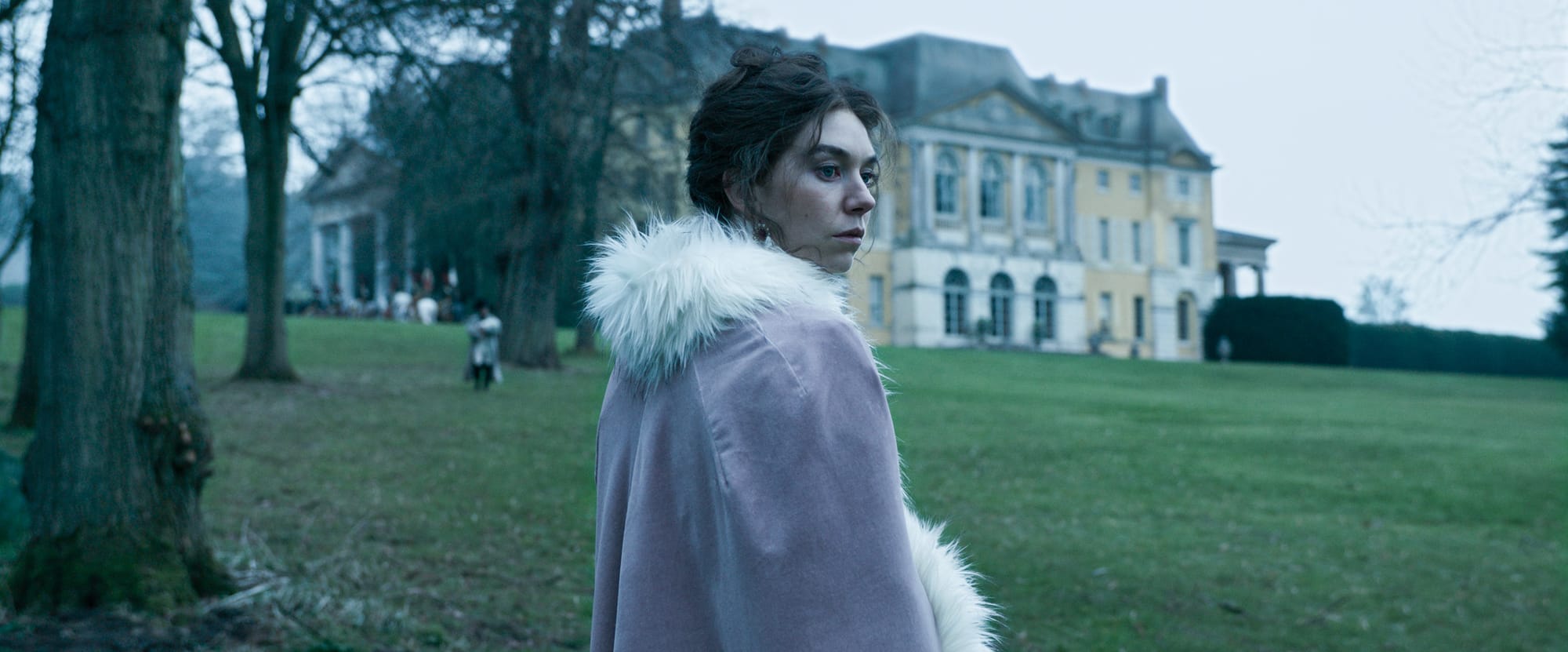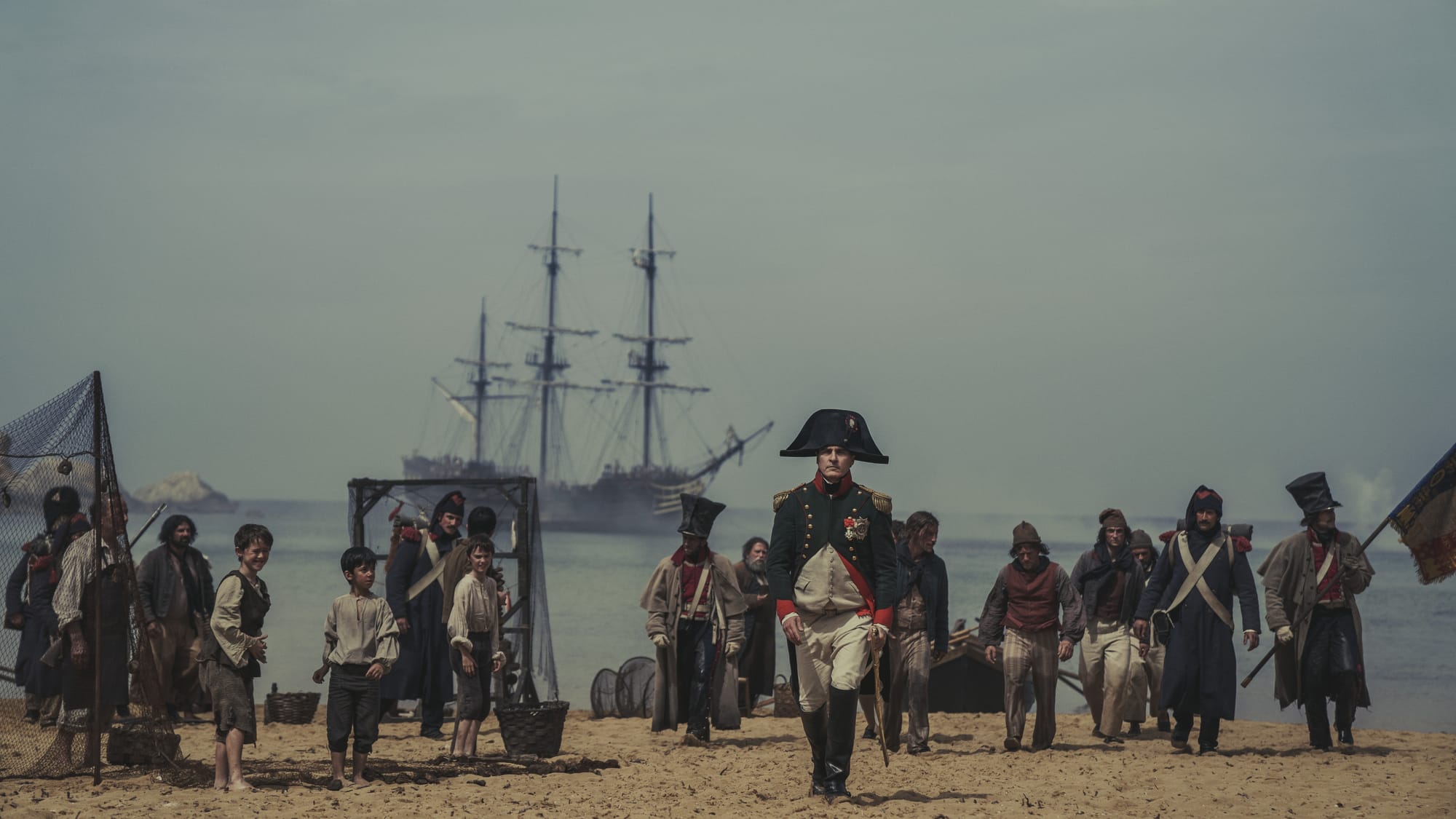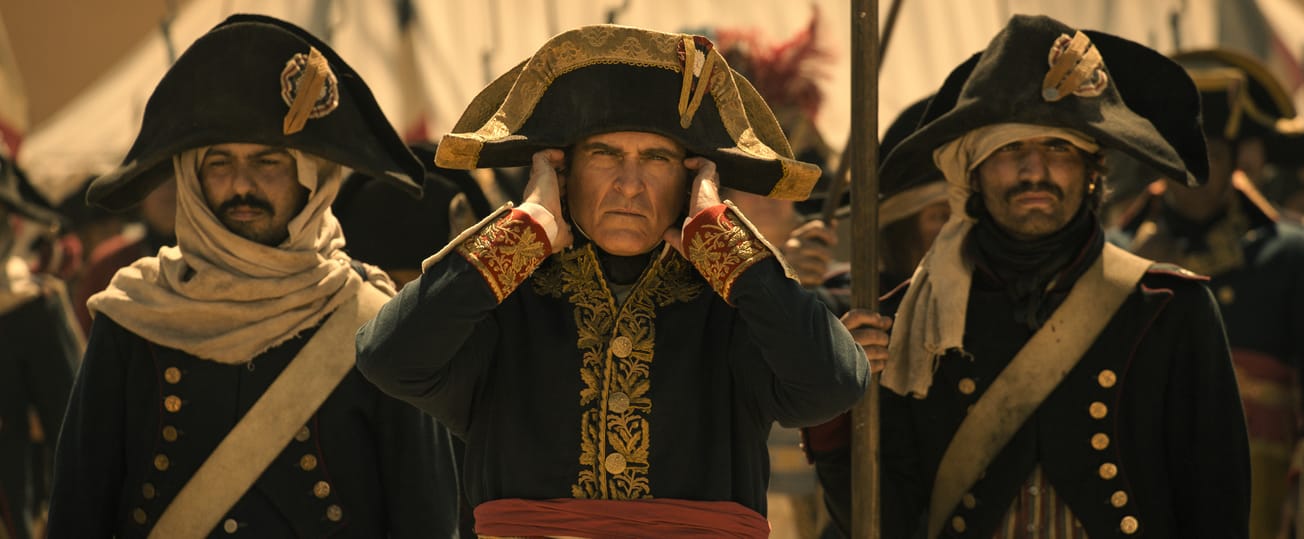By Magnus Solberg, Fourth Year, Film and Television
'Excuse me, mate were you there? No? Well, shut the f*** up then'.
When Ridley Scott said this regarding his new film Napoleon (2023), many began to fear for the film’s integrity. His apparent lack of concern for historical accuracy had fueled discourse among the historical and academic communities, with some claiming that a more accurate story would have led to a better story itself. While to some these inaccuracies are unforgivable, they did not hinder Scott from telling an incredibly compelling story with rich scenes of overwhelming spectacle, mud-covered violence and Joaquin Phoenix leading the charge as the fascinating little ‘brute’.

We follow Napoleon Bonaparte from as early as his days as an officer during the French Revolution. It follows his life as he rises to the ultimate seat of power as Emperor, concluding with the famous Battle of Waterloo. Crucially, throughout the film, we see Napoleon’s relationship with Josephine (Vanessa Kirby), his new wife with which, despite years of erotic debauchery, she cannot get pregnant, and cannot produce an heir.
A valiant attempt is made in condensing an entire man’s life into less than three hours, and does well to cover both his battlefield intellect and his romantic failings which creates a fascinating dichotomy, which Phoenix does well to portray as the little brute. However, even the often scene-stealing Phoenix played second fiddle to Vanessa Kirby’s commanding presence as Josephine. The film itself doubles down on this notion with the bulk of Napoleon’s stakes being tied to his relationship (then marriage) with Josephine, the term subplot doesn’t seem appropriate as how constant it is throughout the film, with scenes of Napoleon marching past the pyramids and the Sphinx scored by a letter Napoleon had written to Josephine.

A crucial element of the film which leaves a lot to be desired is how spliced the film feels. The film leaps in time to cover the dense ground of Napoleon’s life. His exile to Elba and the Battle of Waterloo happens within at most 30 minutes of each other. Its jumps in time often feel brash and erratic, as if the editor replaced their scissors with a fracking drill. This creates a crazy pace, may the announcement of a director's cut being released on Apple TV+ later this year serve as the explanation for this, but considering Ridley Scott’s history with his films being cut short for release makes this no surprise.
Napoleon’s strongest visual elements reveal themselves in the vast battle scenes, with the opening battle of Toulon and the Battle of Austerlitz providing some of the best full-scale battle scenes that cinema has seen in recent times. Considering the scale and scope of these scenes, understanding Napoleon’s tactical intellect is impressively clear, and we rarely fall lost amidst the mud and bloodshed. Ridley Scott’s talent for the large-scale, bombastic scenes of indescribable violence remains unwavering.

Napoleon is far from perfect. Its jumbled editing and crazy packing have taken what could’ve been a modern epic classic. But with the coming release of a longer director’s cut, we may have yet seen the definitive version of Ridley Scott’s version of the rise, fall and rise of ‘Old Boney’.








